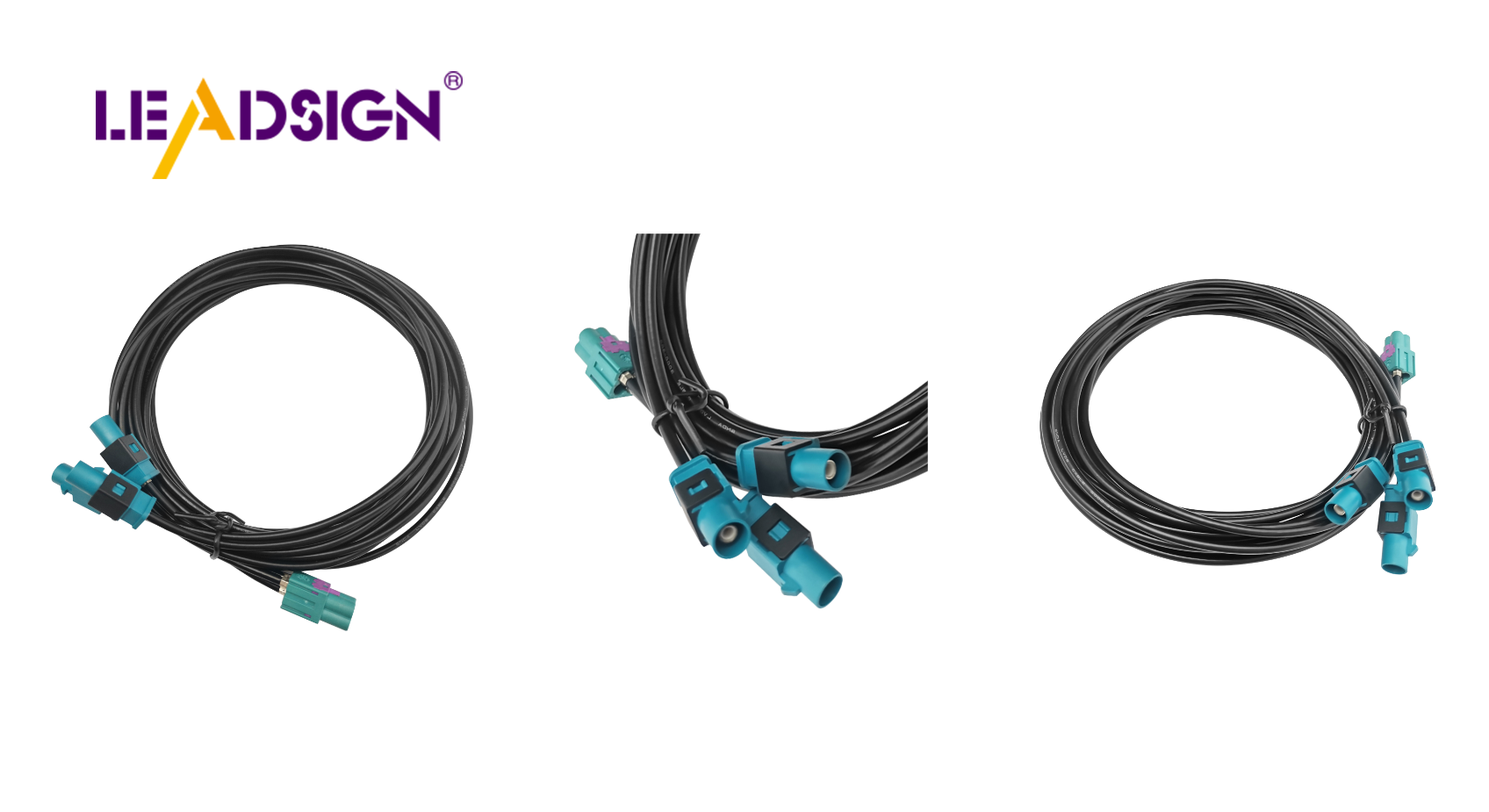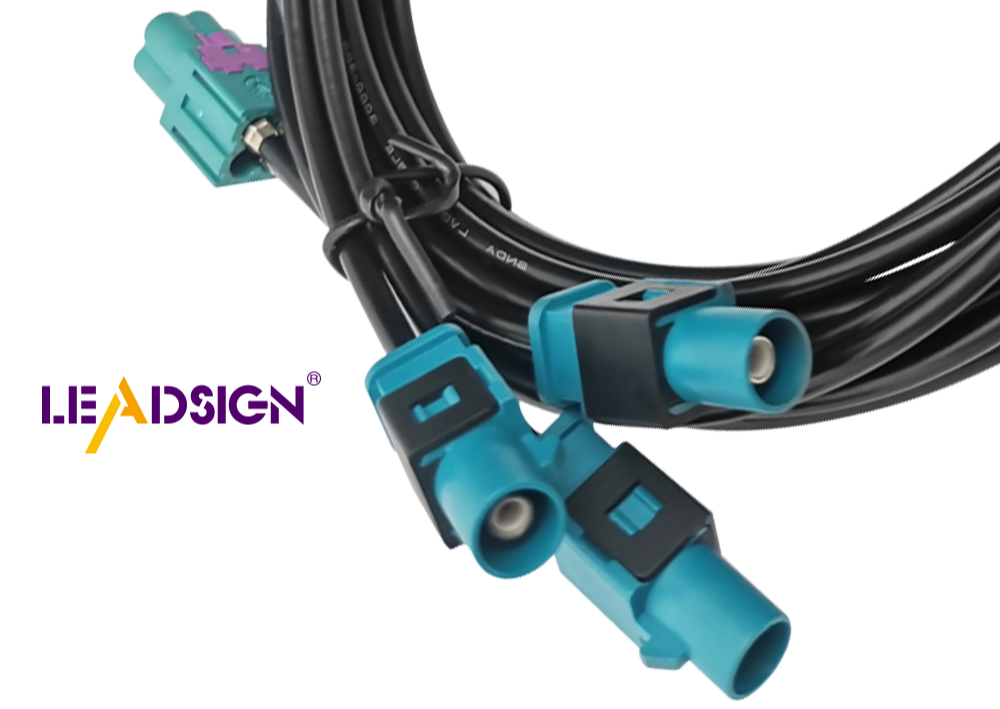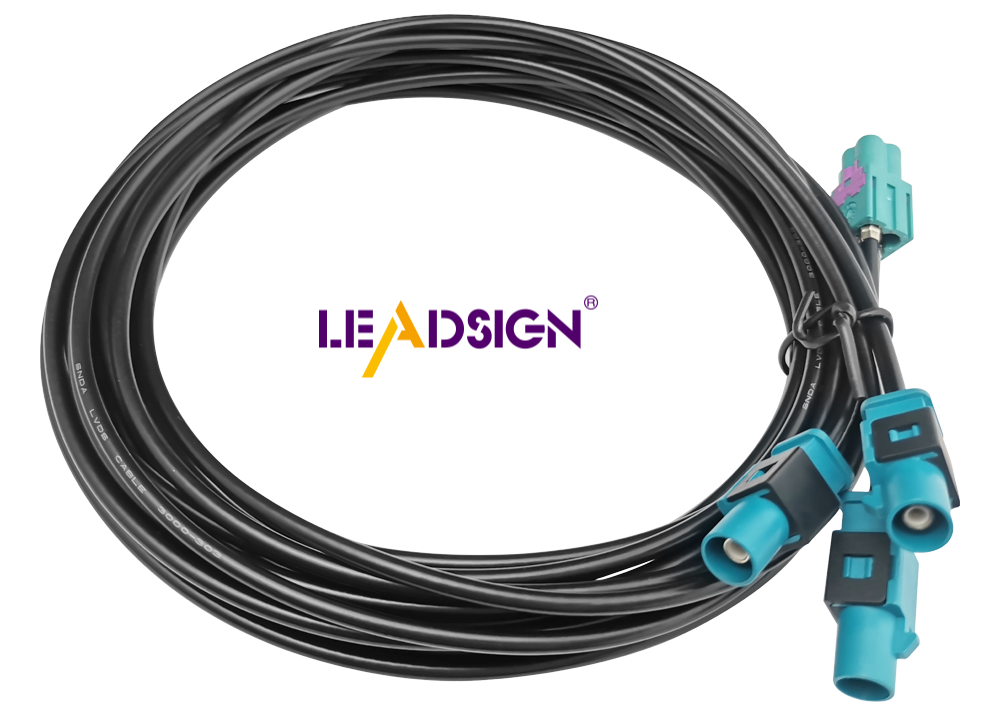How to Choose the Right Automotive Wiring Connector Types

Selecting the appropriate auto wire connector types for vehicles is crucial. These small components play a vital role in the functionality and safety of your car. Imagine the fear of losing control while driving due to a faulty connection. Reliable connectors ensure smooth electrical flow throughout essential systems such as the engine and radio, preventing major issues like steering or brake malfunctions. Therefore, when considering auto wire connector types, keep in mind their role in maintaining the safety and optimal performance of your vehicle.
Understanding Auto Wire Connector Types

Picking the right car wire connectors can be tough. Knowing the basics helps a lot. Let's look at some common types and their uses.
Crimp Connectors
Uses and Benefits
Crimp connectors are often used in cars. They join wires without needing solder. These connectors stay strong even with shaking or bad weather. People like them because they are easy to put on and hold well.
Installation Techniques
To put on crimp connectors, you need a crimper tool. First, strip the wire ends with a stripper tool. Then, put the wire in the connector and squeeze it tight with the crimper. This makes a snug fit. Make sure it's clean for best results.
Solder Connectors
Uses and Benefits
Solder connectors work great in small spaces. You don't need to crimp them, so they're good for tight spots. They make a strong connection by melting solder around wires.
Installation Techniques
When using solder connectors, heat until it melts around wires. Let it cool to harden. This makes a firm link. Use a heat gun or iron carefully to avoid burning wires.
Quick Splice Connectors
Uses and Benefits
Quick splice connectors add new wires fast without cutting old ones. They're useful for quick changes or temporary fixes.
Installation Techniques
To use quick splice connectors, place old wire in one groove and new wire in another groove of the connector. Close it to connect both wires safely.
Knowing these car wire connector types helps you choose wisely for your car's wiring needs.
Criteria for Picking Connectors
Choosing the right car wire connectors is important. Let's see what matters.
Current Rating
Why Current Rating Matters
Current rating shows how much electricity a connector can handle. If it's too low, it might overheat and break. This can cause big problems in your car's electrical system. Always check the current rating to match your needs.
Finding Out Your Current Needs
To know your current needs, look at your car's parts. Each part uses some electricity. Add them up to find the total demand. Pick connectors that handle this easily. This keeps your car running well.
Environmental Conditions
Effects of Heat and Wetness
Weather affects connector work a lot. Heat makes them expand, and wetness causes rusting. Both hurt connection strength. Think about where you drive most often: hot or cold places? This helps you pick better.
Picking Tough Connectors for Weather
For tough weather, choose strong connectors. They resist heat and wetness well with seals or coatings. These keep connections safe no matter the weather.
Space Limits
Why Space Matters in Picking Connectors
Cars have little space inside them. Big connectors may not fit well, causing trouble when installing them. Measure space before picking any connector.
Fixes for Tight Spaces
When space is tight, use small connectors like Mini FAKRA ones. They work great without taking much room, perfect for modern cars where space counts a lot.
By knowing these points, you can choose good wire connectors for cars easily.
Features and Benefits of Specific Connectors

Choosing the right car wire connectors is important. Knowing what each type does helps a lot. Let's look at two popular ones: Mini FAKRA Connectors and HFM Connectors.
Mini FAKRA Connectors
Fast Data Transfer
Mini FAKRA connectors send data quickly. They can handle speeds up to 28 Gb/s. This makes them great for new car tech like cameras and GPS. Fast data is key for safe driving systems that need quick info.
Small Size Advantage
Cars have little space, so Mini FAKRA connectors are small but strong. They fit in tight spots without losing power. This helps with high-tech car systems where every bit of space matters.
HFM Connectors
Quick Data Flow
HFM connectors are fast too, perfect for safety systems in cars. They help sensors work quickly to avoid crashes or stay in lanes. These connectors keep your car's safety parts running well.
Space-Saving Design
HFM connectors are tiny, using much less room than old types. This saves space and weight, making them smart for new cars. Their small size lets you fit more parts neatly inside your car.
Using these special wire connector types can make your car better and safer. Whether you need speed or space-saving, Mini FAKRA and HFM connectors meet today's car tech needs.
Practical Tips for Installation and Maintenance
Using the right tools helps with car wire connectors. Here are some tips to keep them working well.
Using the Right Tools
Tools You Need
You need a few tools to start. A crimping tool is important for crimp connectors. It makes wires and connectors stick together well. Wire strippers help take off wire covers without harm. For solder connectors, you need a soldering iron and heat gun. These melt solder to hold wires tight.
Picking Good Tools
Choosing good tools can be hard with many choices. Pick ones that feel nice in your hand. They should be easy and strong to use. Reading reviews or asking experts can help you choose wisely. Good tools save time and trouble later.
Making Sure Connections Are Strong
How to Make Secure Connections
Strong connections make your car's electric parts work well. With crimp connectors, push the wire in fully before crimping it tight. For solder connectors, heat evenly around the wire until cool for a firm hold. Avoid bending wires sharply as it weakens them.
Keeping Connectors Lasting Long
Check your connectors often for wear or rust spots. Clean them gently with a brush or cloth to remove dirt. If damaged, change the connector quickly. Keep them dry and safe from water to last longer.
Follow these tips so your car wire connectors work well and last long. Remember, using good tools and methods is key for success.
Picking the right car wire connectors is very important. Here's a quick review:
Main Ideas: You learned about different connector types, how to use them, and how to put them on. You also found out how to choose connectors by looking at electricity needs, weather effects, and space limits.
Think About: Always think about these things when choosing connectors. They help your car work well and stay safe.
Last Thoughts: Picking the right connectors affects how your car works and stays safe. By picking carefully, you make your car more reliable and efficient.
See Also
Essential Guide to HSD Connectors in Auto Sector
Significance of Fakra Connectors in Contemporary Cars
Key Role of HSD Connectors in Auto Sector

